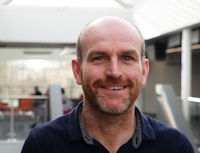Sustainable diets will remain a minefield until we change the way we approach food
Posted on 2 March 2018

If you’re one of the millions of people concerned about the growing pressures that our food habits are placing on the environment, then you’ve probably felt confused, conflicted or downright overwhelmed by your own food choices on more than a few occasions.
Is quinoa good, evil, or somewhere in between? Were the coconuts in my coconut milk picked by a monkey? Am I a bad person if I eat an avocado?
In the drive for change, it’s vital for consumers to use their purchasing power as discerningly as they can. But with profit-making still at the top of the food industry agenda – and the environmental costs of many food products hidden by complex supply chains – we need more than consumer power alone to achieve a truly sustainable food system.
The global population continues to grow in a world with limited resources, increasing the pressure on producers to maximise the amount of food that can be grown on existing land. As the long tentacles of transnational corporations seek the most cost-effective and efficient supply chains to feed these extra mouths, the environment has often had to take the strain. A billion tonnes of top soil vital to crop quality are lost every year through erosion in the 28 EU states alone, while land use change has driven a 58% decline in vertebrate abundance since 1970.
Read the full article in The Conversation or in the Independent.
